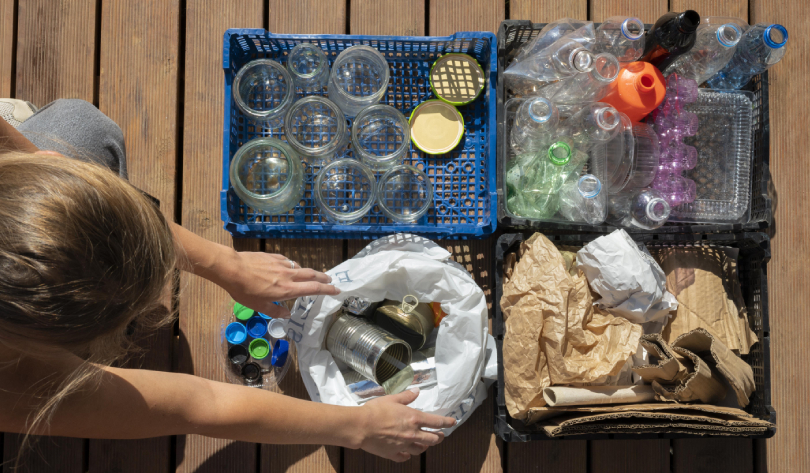Synopsis –
Extended Producer Responsibility (EPR) is a cornerstone of effective e-waste management, ensuring producers are accountable for the lifecycle of their electronic products. This blog delves into the best practices for EPR in e-waste management, providing compliance tips for producers. We will explore the role of the Central Pollution Control Board (CPCB) in enforcing EPR regulations, the benefits of compliance, and strategies for implementing successful e-waste management programs. Additionally, we will highlight how Endeavor Recyclers supports producers in achieving EPR compliance, promoting a sustainable approach to e-waste management.
Table of Content
- Understanding EPR in E-Waste Management
- Best Practices for EPR Compliance
- Role of CPCB in Enforcing EPR Regulations
- Benefits of EPR Compliance for Producers
- Common Challenges in E-Waste Management
- Strategies for Effective E-Waste Collection and Recycling
- Monitoring and Reporting Requirements
- How Endeavor Recyclers Supports EPR Compliance
Understanding EPR in E-Waste Management
Extended Producer Responsibility (EPR) is a policy framework that mandates producers to manage the entire lifecycle of their electronic products, including take-back, recycling, and final disposal. In e-waste management, EPR ensures that producers are responsible for the environmental impact of their products, promoting sustainable practices and reducing pollution. EPR compliance is crucial for mitigating the adverse effects of e-waste on the environment and public health.
Achieving EPR compliance involves implementing best practices in e-waste management. Here are some key strategies-
- Develop a Comprehensive Waste Management Plan– Create a detailed plan outlining how e-waste will be collected, recycled, and disposed of responsibly.
- Set Up Collection Points– Establish convenient collection points for consumers to return their end-of-life electronic products.
- Partner with Certified Recyclers—Collaborate with certified recycling companies to ensure that e-waste is processed in an environmentally sound manner.
- Educate Consumers– Raise awareness among consumers about the importance of e-waste recycling and available take-back programs.
- Use Eco-Friendly Design– Design products with recyclability in mind, using materials that can be easily separated and reused.
Role of CPCB in Enforcing EPR Regulations
The Central Pollution Control Board (CPCB) plays a pivotal role in enforcing EPR regulations for e-waste management. The CPCB reviews and approves waste management plans, conducts inspections to ensure compliance, and provides guidelines to help producers meet their EPR obligations. The board’s online portal facilitates the registration and reporting process, making it easier for producers to comply with EPR requirements.
Benefits of EPR Compliance for Producers
EPR compliance offers numerous advantages for producers, including-
- Regulatory Adherence– Ensures compliance with national and international environmental regulations, avoiding fines and legal issues.
- Sustainability Commitment– Demonstrates a commitment to environmental stewardship and sustainable waste management practices.
- Enhanced Brand Reputation– Builds a positive brand image by showcasing the company’s dedication to responsible e-waste management.
- Resource Efficiency– Promotes the recycling and reuse of materials, reducing the need for virgin resources and lowering production costs.
Common Challenges in E-Waste Management
Producers may face several challenges in managing e-waste, including understanding complex regulatory requirements, developing effective waste management plans, and ensuring proper implementation. Maintaining accurate records and reporting EPR activities to the CPCB can also be demanding. Overcoming these challenges requires a thorough understanding of EPR regulations and a commitment to sustainable practices.
Strategies for Effective E-Waste Collection and Recycling
To manage e-waste effectively, producers can adopt several strategies-
- Establish Take-Back Programs– Implement take-back programs encouraging consumers to return their end-of-life electronic products.
- Use Advanced Recycling Technologies– Invest in advanced recycling technologies that enhance the efficiency and effectiveness of e-waste processing.
- Collaborate with Stakeholders– Partner with other stakeholders, including government agencies, NGOs, and consumers, to promote e-waste recycling.
- Implement Reverse Logistics– Develop reverse logistics systems that facilitate the return of e-waste from consumers to recycling facilities.
Monitoring and Reporting Requirements
Regular monitoring and reporting are essential to EPR compliance. Producers must track their EPR activities, including the amount of e-waste collected, recycled, and disposed of. This information must be reported to the CPCB to demonstrate compliance with EPR regulations. Accurate record-keeping and timely reporting help ensure transparency and accountability in the EPR process.
How Endeavor Recyclers Supports EPR Compliance
Endeavor Recyclers is committed to helping producers achieve EPR compliance for e-waste management. Our team of experts provides comprehensive support, from developing waste management plans to submitting applications and ensuring compliance with regulatory requirements. We offer tailored solutions to meet the unique needs of each producer, making the EPR compliance process more manageable.
At Endeavor Recyclers, we understand the complexities of achieving EPR compliance for e-waste management. We aim to simplify the process for producers, allowing them to focus on their core business activities. We offer end-to-end support, from initial consultation to obtaining necessary certifications and implementing effective waste management strategies.
Our state-of-the-art recycling facility further supports producers by efficiently processing e-waste. Our facility has advanced technology and ensures environmentally friendly recycling practices, contributing to the circular economy. Producers can achieve their EPR goals and promote sustainable e-waste management by partnering with Endeavour Recyclers.
In addition to our consulting services, we provide training and resources to help producers implement their EPR plans effectively. Our commitment to environmental stewardship and sustainability drives us to support producers in meeting their regulatory obligations and contributing to a greener future.
Conclusion
Best Practices for EPR Compliance in E-Waste Management EPR compliance is essential for managing e-waste in India and promoting environmental sustainability. By understanding and implementing best practices, producers can navigate the complexities of EPR compliance and benefit from its advantages. Endeavor Recyclers is dedicated to helping producers achieve their EPR goals and ensuring responsible e-waste management practices.


